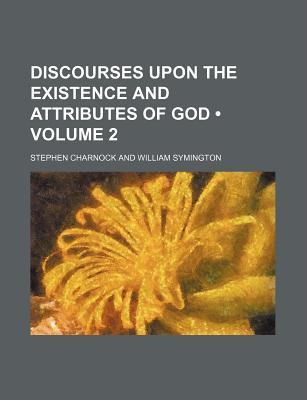- Bible
- Read the Bible
- Bible Versions
- Verse of the Day
- Reading Plans
- Verses by Topic
- Books of the Bible
- Bible Images
- Study
- Commentaries
- Concordances
- Dictionaries
- Encyclopedias
- Sermons
- Bible Atlas & Maps
- BP Wiki
- Devotionals
- Today's Devotionals
- Light of the World
- All Devotionals
- Inspirational Quotes
- More
- Picture Quotes
- Videos
- Inspirational
- Bible Study
- What The Bible Says
- Bible Q&As
- Daily Bread
- Bible by Genre
- Bible Stories
- Random Bible Verse
- Community
- Store
Discourses Upon the Existence and Attributes of God (Volume 2)
by Stephen Charnock
This historic book may have numerous typos, missing text, images, or index. Purchasers can download a free scanned copy of the original book (without typos) from the publisher. 1858. Not illustrated. Excerpt: ... DlSCOURSE XlV. ON GOD'S PATIENCE. Natium, I. 3.--The Lord is slow to auger, and great in power, and will not at all acquit the wicked: the Lord hath his way in the whirlwind and in the storm, and the clouds arc the dust of his feet The subject of this prophecy is God's sentence against Nineveh, the head and metropolis of the Assyrian empire: A city famous for its strength, and thickness of its walls, and the multitude of its towers for defence against an enemy. The forces of this empire did God use as a scourge against the Israelites, and by their hands ruined Samaria, the chief city of the ten tribes, and transplanted them as captives into another country (2 Kings, xvii. 5, 6), about six years after Hezekiah came to the crown of Judah (2 Kings, xviii. compared with chap. xvii. 6), in whose time, or, as some think, later, Nahum uttered this prophecy. The name, Nahum, signifies Comforter; though the matter of his prophecy be dreadful to Nineveh, it was comfortable to the people of God: for a promise is made, (ver. 7), " The Lord is good, a stronghold in the day of trouble; and he knoweth them that trust in him." And an encouragement to Judah, to keep their solemn feasts, (ver. 15: and also in chap. ii. 3), with a declaration of the misery of Nineveh, and the destruction of it. Observe, 1. In all the fears of God's people, God will have a Comforter for them. Judah might well be dejected with the calamity of their brethren, not knowing but it might be their own turn shortly after. They knew not where the ambition of the Assyrian would stop; but God by his prophets calms their fears of their furious neighbor, by predicting to them the ruin of their feared adversary. 2. The destruction of the church's enemies is the comfort of the church. By that God is glo...
BUY NOW
Paperback, 300 pages
Published January 1st 2012 by General Books
© 2025 Bibleportal.com All rights reserved.

Puritan divine, Stephen Charnock was an English Puritan Presbyterian clergyman born at the St Katherine Cree parish of London. Charnock studied at Emmanuel College, Cambridge, during which he was converted to the Christian faith, beginning his spiritual journey as a Puritan divine.
He moved to Ireland in 1656 where he became a chaplain to Henry Cromwell, governor of Ireland. In Dublin, he began a regular ministry of preaching to other believers. Those who came to hear him were from different classes of society and differing denominations, and he became widely known for the skill by which he discharged his duties.
... Show more